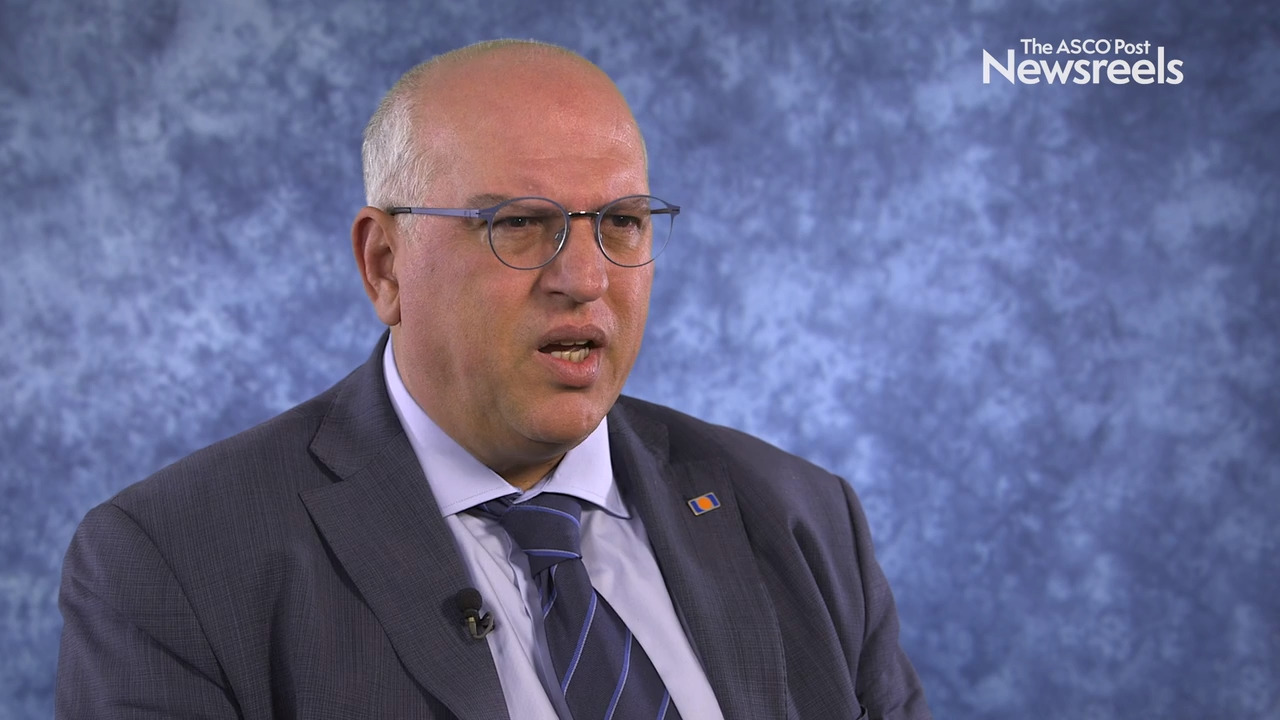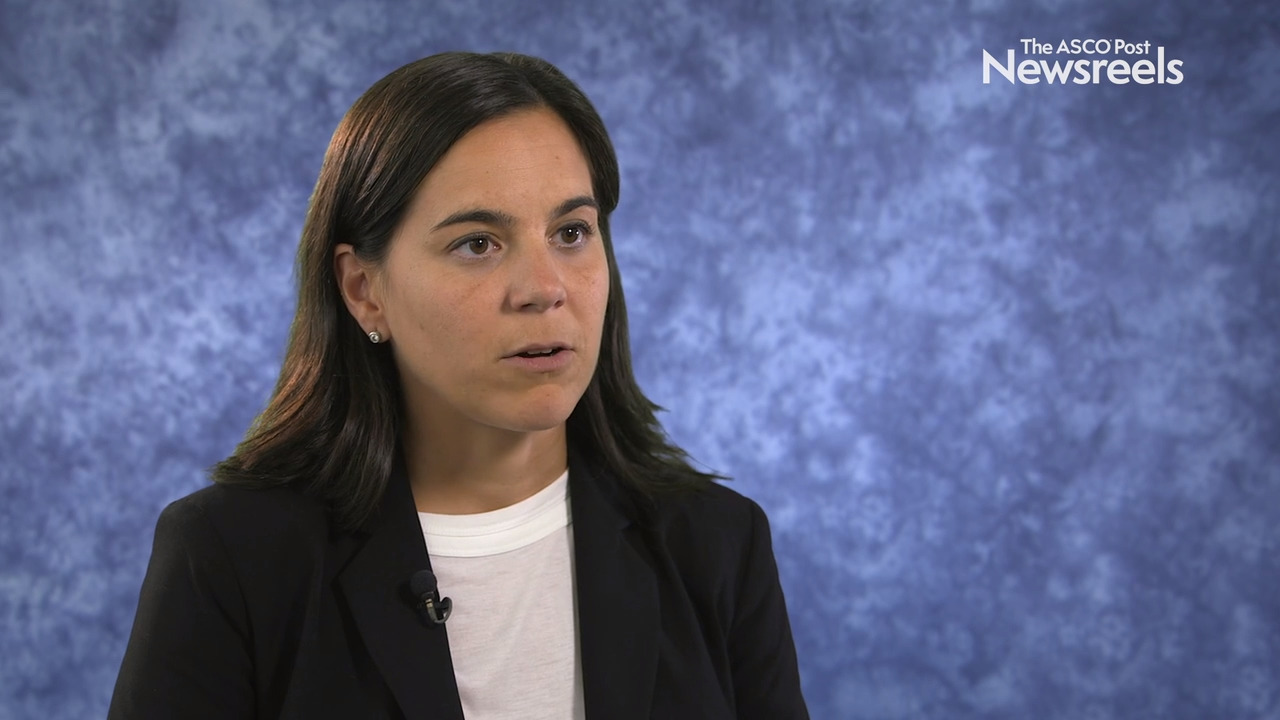Antonio González Martín, MD, PhD, on Ovarian Cancer: PRIMA/ENGOT-OV26/GOG-3012 Trial of Niraparib
ESMO 2019 Congress
Antonio González Martín, MD, PhD, of the Clínica Universidad de Navarra, discusses study findings showing niraparib therapy significantly improved progression-free survival in patients with advanced ovarian cancer across biomarker subgroups (Abstract LBA1).
Sherene Loi, MD, PhD, of Peter MacCallum Cancer Centre at the University of Melbourne, and Leisha A. Emens, MD, PhD, of UPMC Hillman Cancer Center, discuss overall survival in this phase II study of atezolizumab/trastuzumab emtansine (T-DM1) vs placebo/T-DM1 in previously treated HER2-positive advanced breast cancer (Abstract 305O).
Suresh S. Ramalingam, MD, of Emory University, discusses results from the final overall survival analysis of the phase III FLAURA trial in EGFR-mutated advanced non–small cell lung cancer, which showed that osimertinib provided a survival benefit vs comparator EGFR tyrosine kinase inhibitor therapy in the first-line setting (Abstract LBA5).
Paolo A. Ascierto, MD, of the Istituto Nazionale Tumori, Napoli, discusses phase III study findings confirming the superior activity of nivolumab vs ipilimumab in resected stage III/IV melanoma in terms of regression-free survival after a minimum follow-up of 36 months (Abstract 1310O).
Solange Peters, MD, PhD, of the Oncology Department of CHUV, discusses study findings from the first phase III trial to show PD-1 and CTLA-4 inhibition is effective in non–small cell lung cancer, with improved overall survival vs chemotherapy (Abstract LBA4).
Angela Lamarca, MD, PhD, of the Christie NHS Foundation Trust, discusses findings from a study that showed new staging criteria should be considered for patients diagnosed with liver metastases in the absence of other extrahepatic tumor spread (Abstract 731P).





